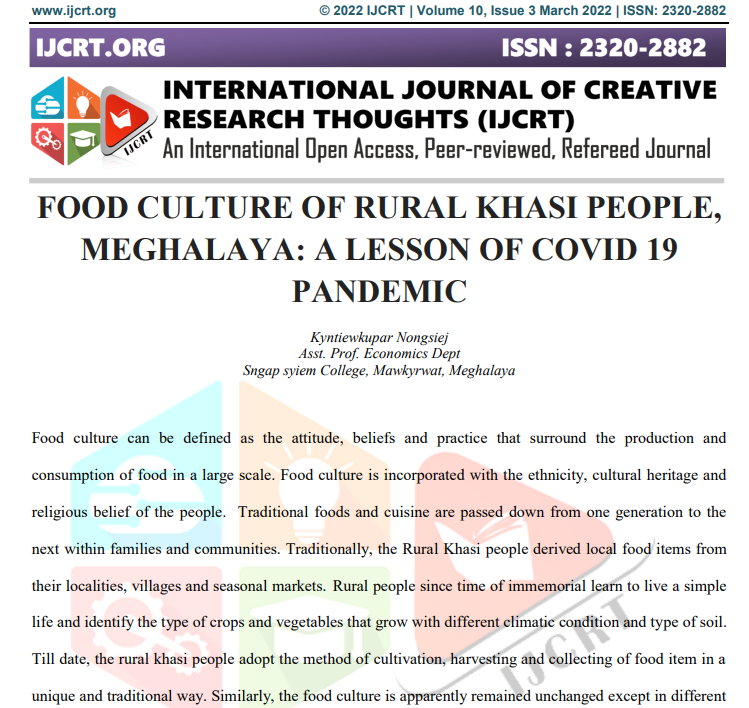
Food Culture of Rural Khasi People, Meghalaya: A Lesson of Covid 19 Pandemic
Publication Year: 2022
Author(s): Nongsiej K
Abstract:
Food culture can be defined as the attitude, beliefs and practice that surround the production and consumption of food in a large scale. Food culture is incorporated with the ethnicity, cultural heritage and religious belief of the people. Traditional foods and cuisine are passed down from one generation to the next within families and communities. Traditionally, the Rural Khasi people derived local food items from their localities, villages and seasonal markets. Rural people since time of immemorial learn to live a simple life and identify the type of crops and vegetables that grow with different climatic condition and type of soil. Till date, the rural khasi people adopt the method of cultivation, harvesting and collecting of food item in a unique and traditional way. Similarly, the food culture is apparently remained unchanged except in different festive occasions. Food is an essential part of people’s lives, and not just a means of survival. It is also the main factor in how we view and differentiate people and influences the impacts on their culture.
Source of Publication: International Journal of Creative Research Thoughts (IJCRT)
Vol/Issue: 10(3)
ISSN: 2320-2882
Country: India
Publisher/Organisation: International Journal of Creative Research Thoughts (IJCRT)
URL:
https://ijcrt.org/papers/IJCRT2203472.pdf
Theme: Traditional/ Indigenous Knowledge | Subtheme: Food Systems



